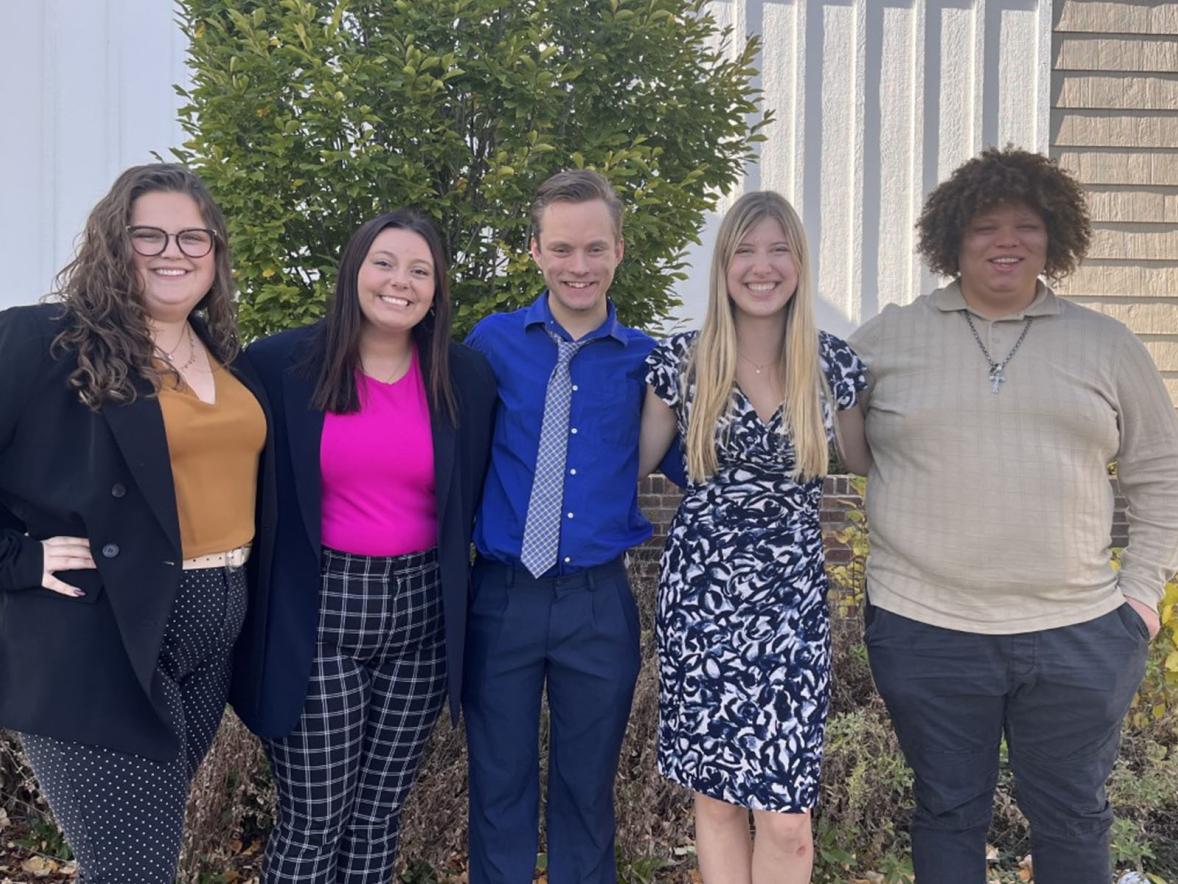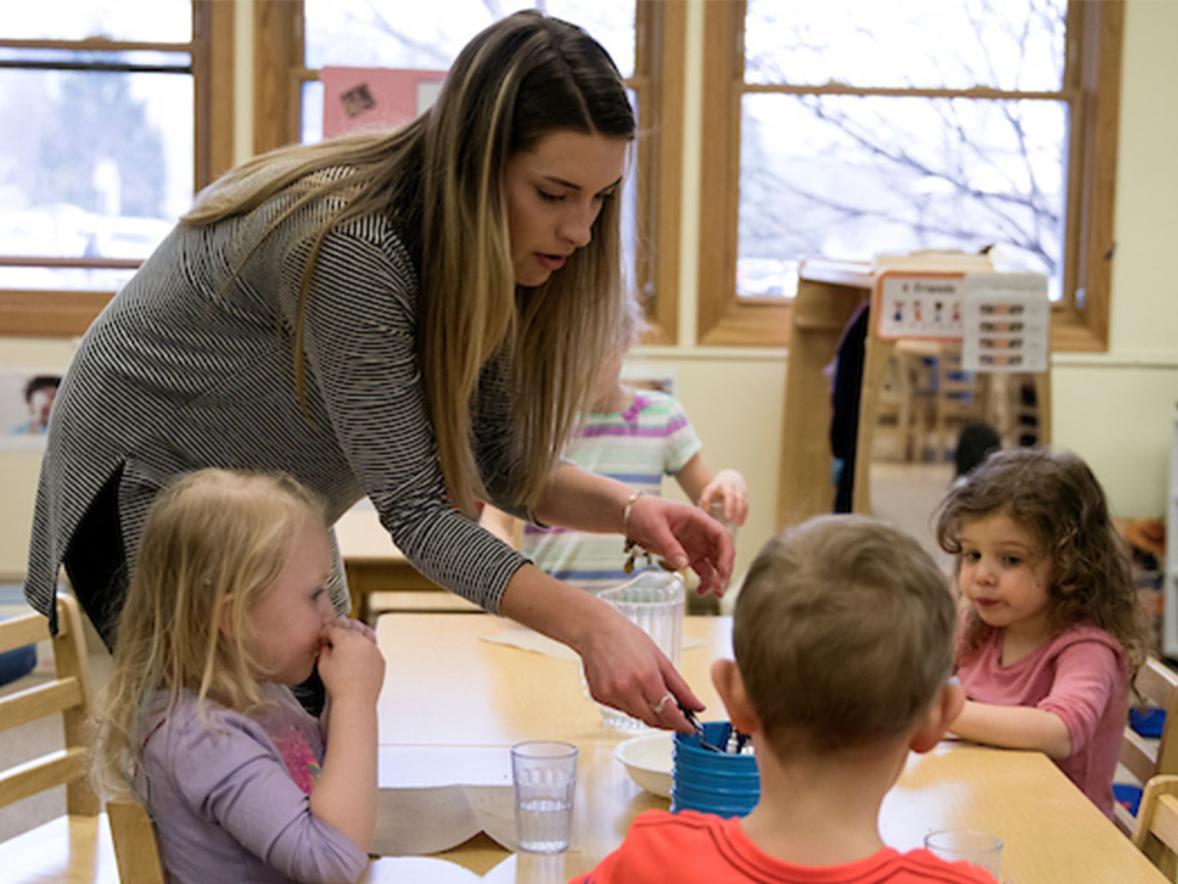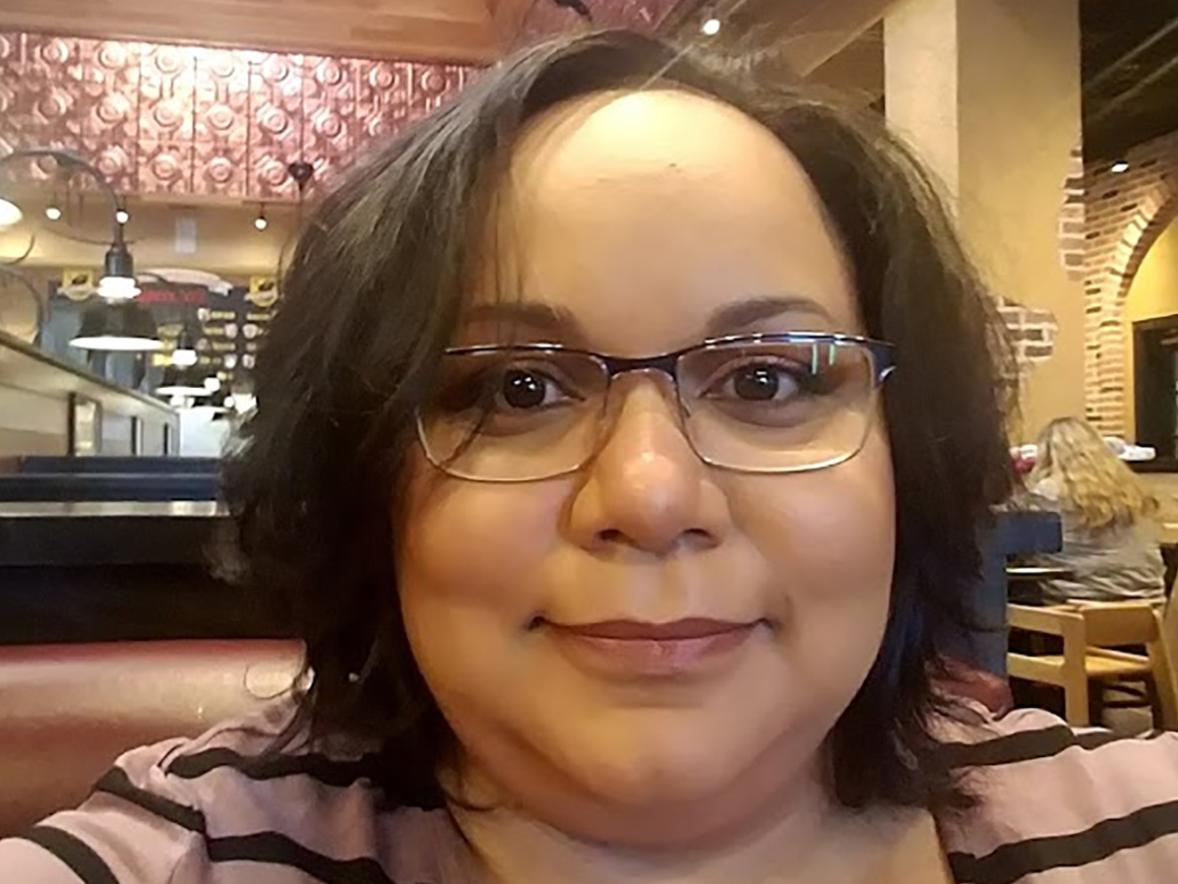Sylvia Cheuy equates collective impact to that of growing a bamboo tree.
The first few years the tree develops a root system so that when mature it can grow many feet in a matter of days.
Cheuy is a consulting director of the Tamarack Institute, a consulting group from Waterloo, Ontario, Canada, that helps organizations and citizens equip themselves to make lasting change in their communities.
She was the keynote speaker at the Career and Technical Education Summit held June 20-21 at University of Wisconsin-Stout. The fourth annual summit was created because UW-Stout recognized that workforce development and career and technical education needs to be viewed through a wide community lens and through the engagement of many partners.
Collective impact is a cross-sector approach to solving complex social and environmental issues on a large scale.
For success in collective impact, there needs to be a common agenda with continuous communication, and those involved must be willing to collaborate over a long-term commitment, Cheuy said.
“It starts to happen when we all have a say and role to make the goal happen,” Cheuy said.
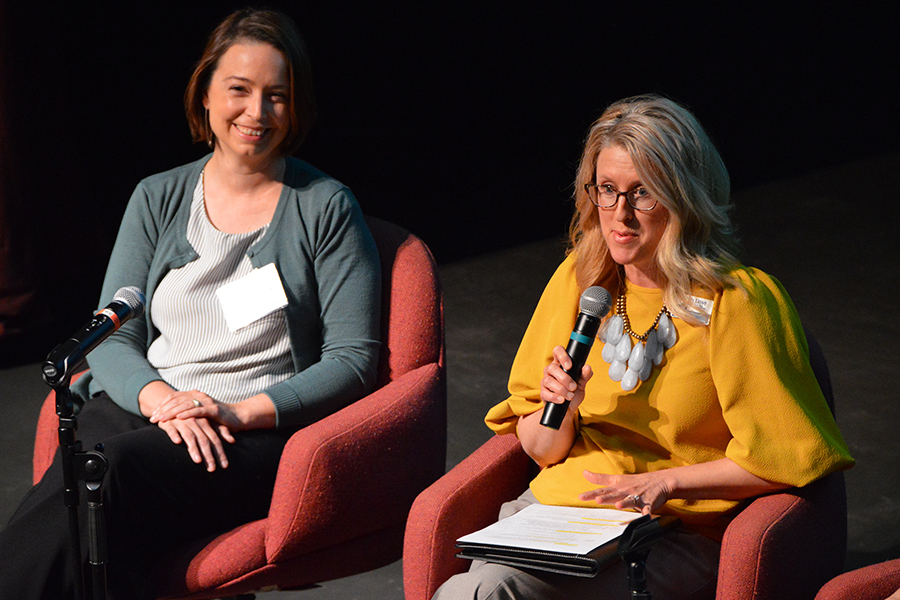
A panel consisting of groups showing collective impact spoke as part of the summit.
Panelists included Karen Katz, operations lead of the Wisconsin Office of Children’s Mental Health; Stacy Eslick, executive director of Reach Higher Wisconsin; Chelsea Powell, deputy director of Higher Expectations in Racine County; Andrea Gabel, director of Sector Strategy Development with the Wisconsin Economic Development Corp; KT Gallagher, Dunn County Health Department director; and Cristy Linse, director of the Initiative to Create the UW-Stout Center for the Study and Promotion of Health and Wellbeing.
The initiative at UW-Stout started about 11 months ago, Linse said. She has had more than 100 cups of coffee as she talks with people and meets stakeholders about the initiative. “Communication is really listening to people,” she said.
The goal of the center is to establish partnerships that increase opportunities for students to engage in applied learning and research and to develop relationships that promote the accessibility and visibility of UW-Stout academic programs to the community.
“We have many specialists on our campus, and we want to make sure the community has access to them,” Linse said.
“We always have a next step in our project,” Linse said. “We work together toward that.”
Keeping momentum going is a challenge for collective impact, Cheuy said, noting that working together as a connected force can create community change.
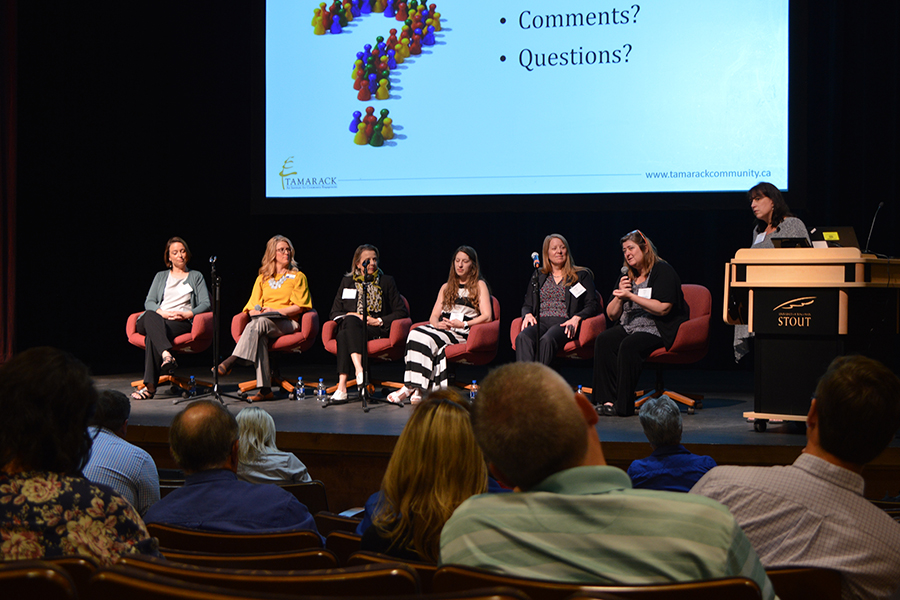
Her company embraces the words of Margaret Wheatley, a writer and management consultant. “All change, even very large and powerful change, starts from very small conversations held among people who care,” Wheatley has said.
UW Stout offers a Bachelor of Science in career, technical education and training, a master’s and doctorate degree in career and technical education. The university also has an Emerging Center for Career and Technical Education Excellence, whose mission is to offer programs and services to support and promote career and technical education in partnership with educational institutions, government agencies, business and industry, other nonprofits and professional associations.
###
Photos
Sylvia Cheuy talks about the collective impact to make lasting change in communities during the UW-Stout Career and Technical Education Summit.
A panel discussion took place on collective impact. Panelist Cristy Linse, at right, director of the Initiative to Create the UW-Stout Center for the Study and Promotion of Health and Wellbeing addresses the summit.
Panelists speak on collective impact around Wisconsin.





